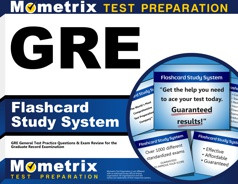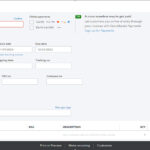Preparing for the Graduate Record Examinations (GRE) is a crucial step for anyone aspiring to pursue graduate studies. The GRE is a challenging exam, and the key to success lies in strategic preparation, with practice being paramount. This is where Gre Online Practice Tests become an indispensable tool. They offer a realistic simulation of the actual exam, helping you familiarize yourself with the format, question types, and time constraints.
Why Utilize GRE Online Practice Tests?
Incorporating GRE online practice tests into your study plan offers a multitude of benefits that contribute significantly to your overall preparation and performance. These tests are not just about answering questions; they are about strategic learning and improvement.
Identify Your Strengths and Weaknesses
One of the primary advantages of GRE online practice tests is their ability to pinpoint your specific areas of strength and weakness. By analyzing your performance on practice tests, you gain valuable insights into which topics you excel in and which require more focused attention. This targeted approach ensures that your study efforts are directed efficiently, maximizing your learning outcomes. Instead of broadly reviewing all subjects, you can concentrate on the areas where you need the most improvement, leading to a more effective and productive study routine.
Familiarize Yourself with the GRE Exam Format
The GRE has a specific structure and question format that can be initially daunting. GRE online practice tests replicate this format, allowing you to become comfortable with the test layout, question types in both Verbal Reasoning and Quantitative Reasoning sections, and the overall flow of the exam. This familiarity reduces test-day anxiety and allows you to approach the actual GRE with greater confidence and composure. Knowing what to expect in terms of format is a significant advantage in managing your time and strategizing your approach during the exam.
Improve Time Management Skills
Time is a critical factor in the GRE. GRE online practice tests are timed, mirroring the actual exam conditions. Practicing under timed conditions is essential for developing effective time management skills. You’ll learn to pace yourself through each section, allocate time to different question types based on their complexity, and avoid spending too much time on a single question. This practice in time management is crucial for ensuring you can attempt all questions within the allotted time and maximize your score potential.
Build Confidence and Reduce Test Anxiety
Test anxiety can significantly impact performance. Regularly taking GRE online practice tests helps desensitize you to the pressure of the exam environment. As you become more familiar with the test format and improve your scores on practice tests, your confidence will naturally increase. This boosted confidence translates to reduced anxiety on test day, allowing you to perform at your best. Each practice test serves as a step towards building your preparedness and mental fortitude for the actual GRE.
Different Approaches to GRE Practice Testing
To make the most of GRE online practice tests, it’s beneficial to employ a strategic approach that evolves as you progress in your preparation. Consider these stages as you integrate practice tests into your study plan:
Untimed, Open-Book Practice for Initial Assessment
Begin with a GRE online practice test in an untimed, open-book format. This initial test serves as a diagnostic tool to establish a baseline understanding of your current skill level. Allow yourself to use your study materials and take your time to work through each question. The goal here is not to achieve a high score immediately but to understand the types of questions, identify areas where you struggle conceptually, and become acquainted with the test structure without the added pressure of time.
Timed, Open-Book Practice for Pacing Development
Once you have a grasp of the content and format, transition to timed, open-book GRE online practice tests. This stage focuses on developing your pacing and time management within the constraints of the exam duration. While still referring to your study materials as needed, concentrate on answering questions efficiently and effectively within the time limits. This phase helps you bridge the gap between understanding the material and applying that knowledge under timed conditions, crucial for exam success.
Simulated Test Day Conditions for Realistic Preparation
For the most effective practice, simulate actual test day conditions as closely as possible when taking GRE online practice tests. This means taking the test in a quiet environment, without access to study materials, and strictly adhering to the time limits for each section. Mimicking the test day environment helps you build stamina, refine your time management strategies under pressure, and further reduce test anxiety. Treat these simulated tests as dress rehearsals for the real GRE, allowing you to fine-tune your approach and build confidence in your abilities.
Maximizing Your GRE Preparation Beyond Practice Tests
While GRE online practice tests are invaluable, a comprehensive preparation strategy involves leveraging other resources to reinforce your learning and address specific needs.
Utilizing Answer Explanations Effectively
Many GRE online practice tests provide detailed answer explanations. These explanations are a goldmine of learning, but only if used correctly. Resist the temptation to simply read the explanation and move on. Instead, delve deeper into why you got a question wrong, even if you eventually arrived at the correct answer through guessing. Investigate the underlying concepts, review related topics, and ensure you thoroughly understand the reasoning behind the correct answer and why other options are incorrect. This in-depth analysis is far more beneficial than just knowing the right answer.
Comprehensive Topic Comprehension
Remember that GRE online practice tests are practice, not rote memorization tools. Don’t focus on memorizing specific questions and answers, as the actual GRE will feature different questions testing the same concepts. Instead, use practice tests to identify knowledge gaps and then dedicate study time to fully comprehending the underlying principles and topics being tested. A strong conceptual understanding is what will enable you to tackle any question the GRE throws your way, not just the ones you’ve seen in practice.
Leverage Additional GRE Study Resources
To further enhance your preparation, consider utilizing supplementary resources alongside GRE online practice tests. A comprehensive GRE study guide provides structured content review and strategies. Flashcards are excellent for vocabulary building and memorizing key formulas or concepts. For a more immersive and guided learning experience, a GRE online prep course can offer structured lessons, video tutorials, and personalized feedback. Resources like the Mometrix GRE Study Guide, GRE Flashcards, and GRE Online Prep Course are designed to complement your practice testing and provide a well-rounded study experience.
Understanding the GRE Test Outline
The GRE exam assesses skills critical for graduate-level studies across three sections: Analytical Writing, Verbal Reasoning, and Quantitative Reasoning.
-
Analytical Writing: This section evaluates your critical thinking and analytical writing skills through two essay tasks: Analyze an Issue and Analyze an Argument. It assesses your ability to articulate complex ideas clearly, construct logical arguments, and support claims with evidence.
-
Verbal Reasoning: This section measures your ability to understand and analyze written material, reason with discourse, and synthesize information. Question types include Reading Comprehension, Text Completion, and Sentence Equivalence, testing vocabulary, reading skills, and logical reasoning.
-
Quantitative Reasoning: This section assesses your mathematical skills and ability to reason quantitatively, interpret data, and solve problems using mathematical concepts. Question types include Quantitative Comparison, Problem Solving, and Data Interpretation, covering arithmetic, algebra, geometry, and data analysis.
Frequently Asked Questions About GRE Practice and the GRE Exam
Q: What is the purpose of the GRE test?
A: The GRE is a standardized test widely used as part of the graduate school admissions process. It helps universities evaluate applicants’ potential for graduate-level academic work.
Q: What sections are included in the GRE exam?
A: The GRE exam consists of three main sections: Analytical Writing, Verbal Reasoning, and Quantitative Reasoning. Verbal and Quantitative Reasoning are each further divided into two scored sections.
Q: How challenging is the GRE exam?
A: The difficulty of the GRE varies depending on individual strengths and preparation levels. Consistent study and targeted practice in weaker areas are key to overcoming the exam’s challenges.
Q: What constitutes a good GRE score?
A: A “good” GRE score is relative to the specific graduate programs you are applying to. Competitive programs often require scores above the average of 151 for Verbal and 153 for Quantitative Reasoning, and above 4.0 for Analytical Writing. Research the average and preferred score ranges for your target programs.
Q: What is the highest possible score on the GRE?
A: The maximum score for both Verbal Reasoning and Quantitative Reasoning is 170. The Analytical Writing section is scored out of 6.
Q: What is the registration fee for the GRE?
A: As of the latest information, the GRE registration fee is $220, but it’s always best to check the official ETS website for the most current fee.
Q: How often can I retake the GRE?
A: You can take the GRE once every 21 days, up to five times within any continuous 365-day period.
Q: Can you fail the GRE?
A: There is no “pass” or “fail” on the GRE. Your score is a measure of your performance, and graduate schools set their own score expectations.
Q: What GRE score is needed for top universities like Harvard?
A: GRE score requirements for universities like Harvard vary significantly by program. Highly competitive programs will typically require scores in the top percentiles. Check the specific program requirements for accurate information.
Q: How much study time is recommended for the GRE?
A: Recommended study time varies greatly based on your starting level and target score. Most students benefit from at least 1-3 months of focused study, dedicating several hours per week.
Q: Who is required to take the GRE?
A: The GRE is generally required for admission to most graduate programs and many business schools worldwide. Always confirm the specific admission requirements for your chosen programs.
Q: How long are GRE scores valid?
A: GRE scores are valid for five years from your test date.
Q: Can calculators be used on the GRE?
A: Yes, an on-screen calculator is provided for the Quantitative Reasoning sections of the GRE. You are not permitted to bring your own calculator.
Q: Are GRE fee waivers available?
A: Yes, the GRE Fee Reduction Program is available for test takers who demonstrate financial need. Eligibility criteria and application processes are detailed on the ETS website.
Q: Is the GRE considered harder than the GMAT?
A: The perceived difficulty between the GRE and GMAT is subjective and depends on individual strengths. The tests have different formats and question types, with the GMAT focusing more on business-specific reasoning.
Q: Should I attempt to answer every question on the GRE?
A: Yes, there is no penalty for incorrect answers on the GRE. It is always better to attempt every question, even if it means guessing.
Q: How long is the GRE exam?
A: The total testing time for the GRE is approximately 1 hour and 58 minutes, excluding breaks and administrative time.
Q: Which business schools accept the GRE?
A: A vast number of business schools, including top institutions like Harvard Business School, accept the GRE. It’s advisable to confirm directly with your target schools to ensure they accept GRE scores for their programs.
In conclusion, GRE online practice tests are not just about assessment; they are a dynamic learning tool that, when used strategically, can significantly enhance your GRE preparation. By incorporating them into your study plan and utilizing them effectively, you can approach the GRE exam with confidence and achieve your best possible score, paving the way for your graduate school aspirations.
By Mometrix Test Preparation | Last Updated: February 24, 2025



